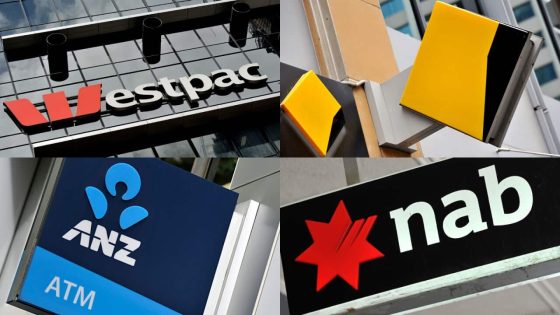Here’s what’s changed in the consumer finance sector.
What are the changes to fixed rate mortgages?
Making cuts of up to 0.8 per cent, Westpac — Australia’s second largest home lender — now has the cheapest fixed rates of the big four banks, Canstar Insights Director Sally Tindall said.
Australia’s second largest home lender now has the cheapest rates of the big four banks. Source: AAP / Dave Hunt
“These cuts from Westpac are designed to entice borrowers who are sick of the rollercoaster ride a variable mortgage rate can take their finances on,” Tindall said.
Commbank is now offering select new customer variable rates at a discount of up to 0.35 percentage points.
Australian Bureau of Statistics data shows just 2.6 per cent of mortgages are on fixed, as opposed to variable, rates, — up slightly from historic lows in April but well down from 46 per cent in July 2021.
What are the changes to term deposits?
But data from financial comparison site Canstar shows deposit rates offered by Australia’s big four banks have been lowered by between 20 and 65 basis points over the past six months.
“This is disappointing but not surprising.”
Credit card interest rates have increased
New analysis this week from comparison site Mozo revealed that although the total credit card debt of Australians has nearly halved in the last decade — from $31.8 billion to $17.5 billion — annual fees have shot up.

Average annual fees have climbed 25 per cent to nearly $135 in the last 10 years. Source: AAP / AAPIMAGE
Average annual fees have climbed 25 per cent to nearly $135 in the last 10 years, while the highest annual fee nearly doubled from $700 to $1,200.
The number of low-rate credit cards offering a 1-10 per cent interest rate has surged by over 600 per cent.
What has the Reserve Bank of Australia said about the cash rate?
However financial markets have priced in a cut to interest rates by the end of the year due to rising unemployment and sluggish economic growth, IG market analyst Tony Sycamore told SBS News.

The RBA has threatened to raise the cash rate again if inflation doesn’t go down. Source: AAP / AAPIMAGE
“Investors also didn’t believe New Zealand’s central bank in May when they threatened to hike rates,” he said.
“That’s (in large part) because the RBA was later to start raising rates, and hasn’t raised them by as much, as its peers: so it shouldn’t come as any surprise that they won’t be as quick to start cutting them as their peers have been”.
Source Agencies

